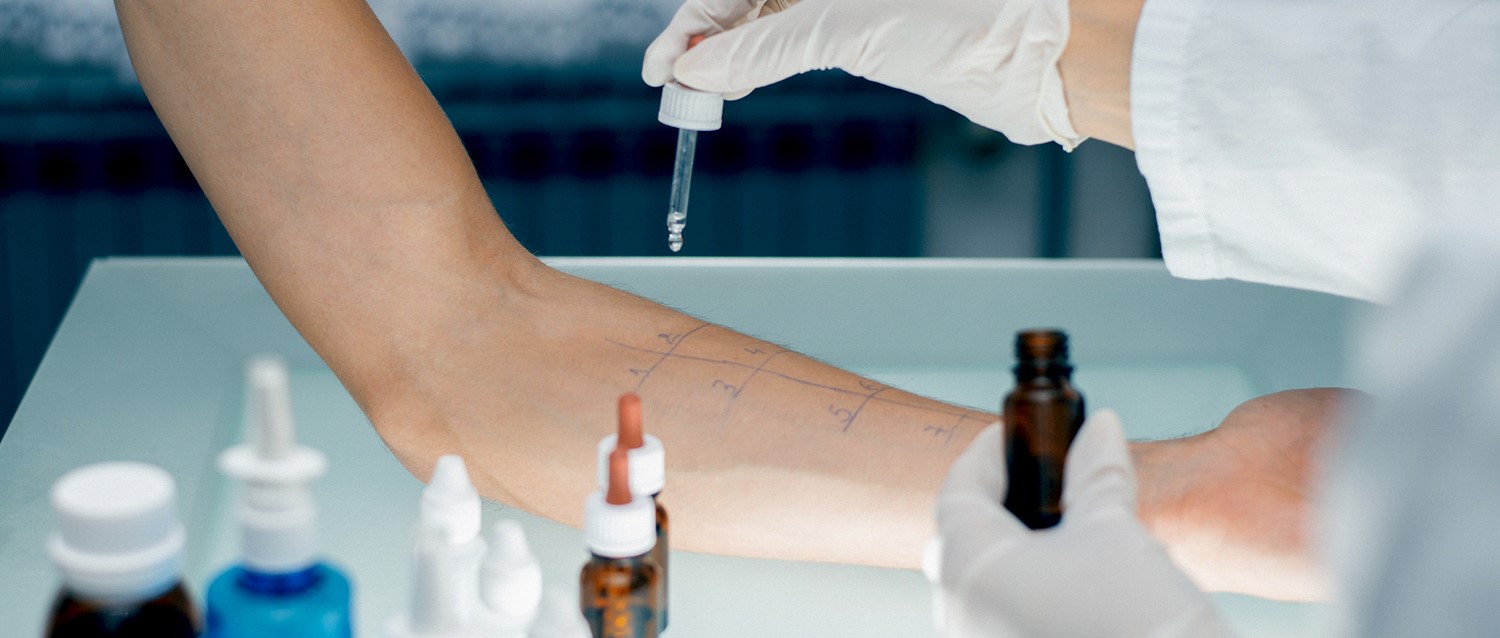
Are private allergy tests worth it?
Peer reviewed by Dr Sarah Jarvis MBE, FRCGPLast updated by Dr Gurvinder Rull, MBBSLast updated 24 Jan 2018
Meets Patient’s editorial guidelines
- DownloadDownload
- Share
- Language
- Discussion
Allergies and intolerances are on the rise, particularly towards foodstuffs. Over four in ten adults in the UK are affected. But if you suspect you have an allergy or intolerance, how can you go about finding out what the culprit is?
Unfortunately the NHS offers a limited number of allergy tests. Tests can be obtained privately but an internet search for 'allergy test' will yield over one million results, many which lead to quite expensive options. But are any of these worth pursuing? We take a look at the evidence.
In this article:
Video picks for Allergies
Continue reading below
What to do if you think you have an allergy?
If you think you have an allergy, the advice from Allergy UK is to start by keeping a food item and symptoms diary to try to identify the offending substance.
GP Dr Mary Harding agrees. She advises her patients to begin with a food diary and then a trial of exclusion, as long as it is a non-life threatening allergy or an intolerance.
"I would also organise some allergy testing if indicated, such as a coeliac screen in someone presenting with abdominal symptoms. If this doesn't help or you have had a potentially life-threatening allergy you may be referred to an allergy specialist."
But there are few NHS allergy consultants, so you may be referred to a different specialist depending on how you present - for example, to ENT, dermatology, or gastroenterology depending on the symptoms. If children are referred, it will often be to paediatricians who will then undertake further tests.
What does the NHS offer?
Back to contentsThe NHS can offer the following for food allergy testing and other allergen testing to try to get to the bottom of a potential allergy or intolerance:
Skin prick
Skin prick tests - where suspected allergens are scratched on to the arm and a resulting bump or skin redness confirms an allergic response.
Blood tests
Blood tests called radioallergosorbent testing (RAST) can also be undertaken. This measures levels of IgE immunity proteins in response to specific substances you could be allergic to.
Patch tests
Other tests may include patch tests where a disc of offending substance, usually a metal, is taped to the skin to see if it triggers an allergic response.
There is robust scientific basis evidence to back up the use of blood testing, skin prick testing and patch testing for certain allergens.
Continue reading below
Alternative tests
Back to contentsOutside the NHS, a number of companies offer other types of allergy testing. Bear in mind that most of these have little to no scientific evidence of their effectiveness though.
Kinesiology
In kinesiology, muscle responses to certain allergens are tested. The theory behind this is that allergens lead to imbalances in energy levels. There is no evidence to support its use.
Hair testing
Hair testing looks at the energy fields around hair. It is used to detect recreational drugs but its role in allergies and intolerances is not proven. Indeed, the National Institute for Health and Care Excellence (NICE) actively advises that hair testing should not be used in the diagnosis of food allergy.
Electrodermal tests
Electrodermal testing is based on the concept that there are various energy lines across the body as in acupuncture. The theory is that the skin's electrical conductance at certain acupuncture points is measured and they can be described as 'normal', 'weak' or 'strong' energy levels. You are then given advice as to how to get the correct balance back which may include exclusions of certain substances. Advocates claim that it can also detect vitamin deficiencies. But there is no evidence to support this method for determining allergies or illnesses.
Pulse test
Here, the pulse rate is measured after eating certain substances. According to advocates, an increase in pulse rate >4 beats per minute (>3 if you have type O blood) suggests an allergy or intolerance to the substance. A re-test is performed one month after avoiding the suspected culprit and if a similar reaction is still seen then they recommend avoiding the offending substance again for another month. If after doing this three times you still have a pulse rise, they state that you should avoid that substance altogether. However, this test is not robust enough to detect allergies or intolerances.
Non-IgE blood tests
You even have to be careful about blood tests for allergies undertaken outside of the NHS. There are different types of allergies and different molecules may be involved. NHS blood tests look at changes in immunoglobulin E levels. This protein is involved in what is termed 'immediate' allergic reactions. These reactions produce sudden symptoms, such as tongue swelling, throat swelling and hives.
Some companies offer blood tests measuring proteins other than IgE. These tests are not scientifically proven. They are also costly and easily affected by what you have eaten a few days previously and also by cosmetics, making them less reliable. These tests are leading to unnecessary avoidance of food stuffs and subsequent nutritional deficiencies.
Allergy or fad?
Back to contentsAnd perhaps you've heard of (or even think you might have) 'leaky gut' syndrome'? This 'condition' has become trendy lately but a good doctor will tell you it's nothing more than a fad.
In 'leaky gut' it is hypothesised that food allergens pass through a damaged gut wall and enter the bloodstream, leading to illnesses such as chronic fatigue syndrome. And yet, there is no evidence to support this. The gut wall is actually pretty impermeable - there are a few medical conditions when it can become leaky, such as Crohn's disease, but as a cause of other illnesses there is no proof.
Gut bacterial overgrowth on the other hand, does exist but is not thought to be the result of food allergy or symptoms of food intolerance. It usually follows a seriously bad stomach infection or occurs in those with inflammatory bowel disease. It can be also be a factor in some cases of irritable bowel syndrome. In the majority of cases it will resolve spontaneously and without medical input. If you think you might have bacterial overgrowth do not just treat it blindly, see your GP and ask about referral to a gastrointestinal specialist who can, if appropriate, test for it and provide the correct treatment.
Continue reading below
In conclusion
Back to contentsWhich allergy tests are worth paying for? The short answer is: none of them. If you suspect you have an allergy or intolerance, go to your GP. If you are referred to a specialist they will go through your symptoms and try to work out which allergens might be the culprit and which tests will be best. Be warned though, you may have to wait some months before your first appointment. Use this time to keep a symptom diary. It's also worth checking the BSACI website to find NHS allergy specialists.
Patient picks for Allergies

Allergies, blood and immune system
What's the difference between a side effect and a drug allergy?
Many of my patients get confused between side effects or intolerance and allergy. Side effects may settle with time and there may be steps you can take to reduce your chance of having them. But if you have an allergic reaction, you must stop the medicine and not take it again.
by Victoria Raw

Allergies, blood and immune system
What you need to know about allergic reactions
When I was a medical student, we had a couple of hours' dedicated teaching on allergies in our whole six years of training. Consultants who specialised just in allergies didn't exist - there were a few doctors working in asthma or eczema who had a particular interest, but it wasn't big news. But in the last few years, big (and dangerous) news is precisely what it has become.
by Dr Sarah Jarvis MBE, FRCGP
Continue reading below
Article history
The information on this page is peer reviewed by qualified clinicians.
24 Jan 2018 | Latest version

Ask, share, connect.
Browse discussions, ask questions, and share experiences across hundreds of health topics.

Feeling unwell?
Assess your symptoms online for free
Sign up to the Patient newsletter
Your weekly dose of clear, trustworthy health advice - written to help you feel informed, confident and in control.
By subscribing you accept our Privacy Policy. You can unsubscribe at any time. We never sell your data.